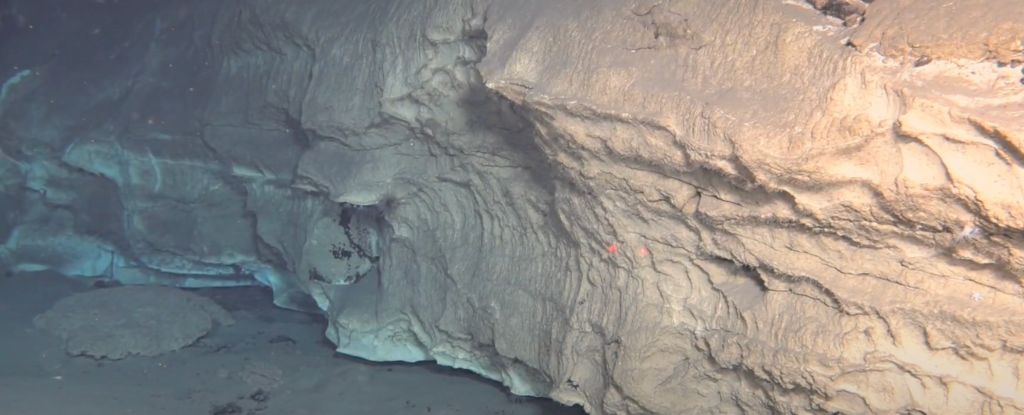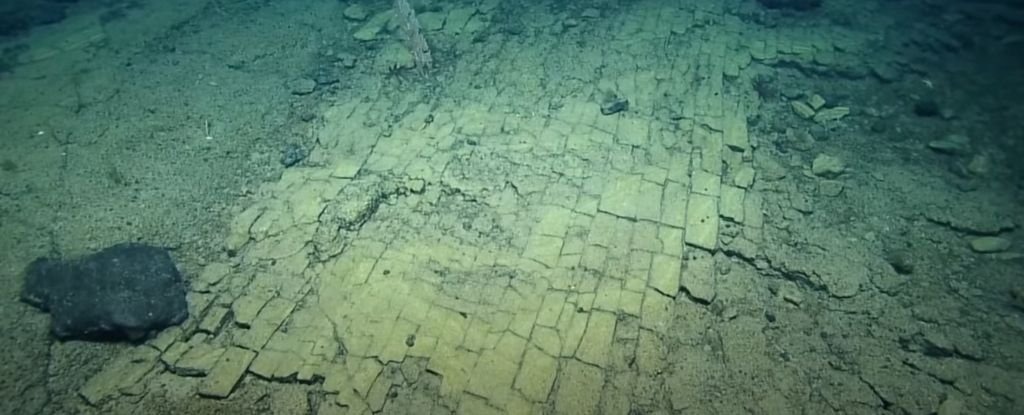ABOARD LIFTBOAT ROBERT, North Atlantic — Deep in Earth’s past, an icy landscape became a seascape as the ice melted and the oceans rose off what is now the northeastern United States. Nearly 50 years ago, a U.S. government ship searching for minerals and hydrocarbons in the area drilled into the seafloor to see what it could find. It found, …
Read More »Tag Archives: ocean
Hurricane Kiko intensifies to Category 4 storm over the Pacific Ocean
MIAMI (AP) — Hurricane Kiko intensified into a major hurricane in the Pacific Ocean on Wednesday at the same time Hurricane Lorena geared up to lash the coast of Mexico’s Baja California. Kiko surged to Category 4 on the Saffir-Simpson Hurricane Wind Scale with maximum sustained winds of 130 mph (215 kph), according to the Miami-based National Hurricane Center. It …
Read More »Something Huge and Brown Is Taking Over the Atlantic Ocean
Since 2011, a monstrous structure has taken shape in the Atlantic Ocean almost every year, sprawling from the West African coast to the Gulf of Mexico. It’s the Great Atlantic Sargassum Belt—a gargantuan bloom of a brown free-floating seaweed. In May, the seaweed belt hit a record biomass of 37.5 million tons. In a study published last month in the …
Read More »Ocean Shipping Rates Sink as Importers Balk at Trade Upheaval – The Wall Street Journal
Ocean Shipping Rates Sink as Importers Balk at Trade Upheaval The Wall Street Journal Transpacific carriers hold course despite demand drop and rates pressure Lloyd’s List World Container Index dropped, continuing decline Container News Ocean Shipping Rates Are Tumbling as U.S. Importers Pull Back on Orders The Wall Street Journal Source link
Read More »Stunning Discovery Deep in The Ocean Dwarfs The Famous ‘Lost City’
A human-occupied vehicle (HOV) probing the deep Pacific Ocean has cast a light upon a massive undersea ‘metropolis’. The tortuous system of deep craters and dolomite walls blows the Atlantic Ocean’s famous ‘Lost City’ out of the water. Through a curtain of falling marine ‘snow’, the ghostly carbonate walls and jagged rocks around twenty hydrothermal vents shimmer in the heat …
Read More »Stunning Discovery Deep in The Ocean Dwarfs The Famous ‘Lost City’ : ScienceAlert
A human-occupied vehicle (HOV) probing the deep Pacific Ocean has cast a light upon a massive undersea ‘metropolis’. The tortuous system of deep craters and dolomite walls blows the Atlantic Ocean’s famous ‘Lost City’ out of the water. Through a curtain of falling marine ‘snow’, the ghostly carbonate walls and jagged rocks around twenty hydrothermal vents shimmer in the heat …
Read More »Watch burnt and battered Starship splash down in Indian Ocean to wrap up historic Flight 10 (video, photos)
Spectacular new footage gives us great looks at the final moments of the latest test flight of Starship, the huge rocket SpaceX is developing to help humanity settle Mars. That mission, the 10th-ever for the 397-foot-tall (121-meter-tall) megarocket, lifted off from SpaceX‘s Starbase site in South Texas on Tuesday evening (Aug. 26). Everything went well on Flight 10. Starship‘s Super …
Read More »Scientists Spotted a ‘Yellow Brick Road’ at The Bottom of The Pacific Ocean : ScienceAlert
An expedition to a deep-sea ridge, just north of the Hawaiian Islands, revealed a surprise back in 2022: an ancient dried-up lake bed paved with what appears to be a yellow brick road. The exploration vessel Nautilus discovered the eerie scene while surveying the Liliʻuokalani ridge in Papahānaumokuākea Marine National Monument (PMNM). PMNM is one of the largest marine conservation …
Read More »Scientists Reveal How Rising Ocean Oxygen Created New Marine Habitats and Triggered Evolution
Recent studies have revealed fascinating connections between rising oxygen levels in deep-ocean environments and the evolution of marine life, particularly in the Late Devonian period. This research, published in the Proceedings of the National Academy of Sciences, uncovers how oxygenation, driven by terrestrial plant growth, may have shaped the future of life in the ocean. These findings help us understand …
Read More »The ocean is getting more acidic, and it could affect sharks’ teeth
Facebook Tweet Email Link How will the climate crisis affect one of the ocean’s fiercest predators? New research published Wednesday has examined what might happen to sharks’ highly specialized, flesh-cutting teeth. As carbon emissions increase, the ocean is absorbing more carbon dioxide from the atmosphere, lowering pH levels and making seawater more acidic, a process that can affect many ocean …
Read More »







